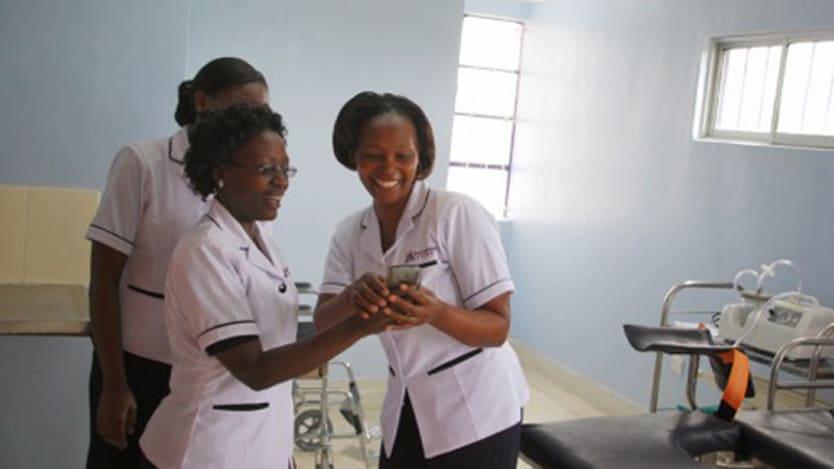Opinion: Using mobile tech to influence behavior and improve maternal health

In the past few years, Kenyans have become more connected than ever before. Between 2000 and 2010, mobile phone penetration increased by 200 percent. Now, over 88 percent of Kenyans report owning a cellphone. This technological shift is not only helping to create a more connected world; it’s creating a unique opportunity to harness technology as a way to influence behavioral change and fuel positive social impact.
Influencing behavior is essential to improving maternal health outcomes in Kenya. Nearly 45 percent of pregnant women do not attend all four antenatal appointments recommended by the World Health Organization, and 46.8 percent of married women in Kenya do not use modern methods of birth control. As such, healthy birth spacing practices are not routine.
To address this, we need innovations that are designed to encourage behavior change at key moments along the continuum of maternal health care. By engaging women through SMS at key touch points, we can improve maternal outcomes by targeting critical behaviors related to antenatal and postnatal care.
We need to take a multifaceted approach, addressing multiple underlying factors that influence a woman’s decision and ability to seek care, including cost, education, partner involvement, and preparedness.
With the generous support of Johnson & Johnson, Jacaranda Health has piloted a package of mobile technology innovations in its maternity hospitals in Kiambu County, a periurban area on the outskirts of Nairobi. Here’s what Jacaranda Health has learned from these m-health interventions.
1. SMS reminders improved uptake of antenatal care.
Every woman seeking antenatal care received a series of six messages personalized to her return clinic dates and gestational age. The messaging content featured themes such as nutrition, symptoms that could be signs of danger or signs of labor, as well as savings methods. Seventy percent of women who received an antenatal clinic appointment reminder returned for a follow-up visit. In comparison, only 49 percent of women who did not receive an SMS reminder returned for a follow-up visit.
2. SMS service improved uptake of postnatal care among mothers.
Through rigorous qualitative methodologies, Jacaranda learned that information and counseling provided through the mobile-based platform can successfully promote adherence to routine contraceptive care. Postpartum reminders were shown to be particularly effective among women who already decided to use family planning during pregnancy. We also found that educational messages improved family planning clients’ satisfaction and perceived quality of care.
3. Engaging husbands and partners through SMS improved uptake of care.
Evidence suggests that men’s active participation in decisions about family planning and reproductive health promotes better overall family health. Hence, the husbands and partners of women who delivered at Jacaranda received a series of six messages at one-week intervals that provided basic information to enhance their knowledge of family planning during the postpartum period. We found that sending postpartum SMS to both men and women increased postpartum family planning uptake.
Fifty-one percent of Jacaranda delivery clients returned for postpartum family planning when both the women and her male partner received reminders, an increase from 42 percent among women whose partners were not enrolled in the intervention.
The best way to generate strong and scalable programs is to rapidly test assumptions around message dosing, content, and partner inclusion and use flexible randomized control trials to validate the effectiveness of interventions. To enhance the delivery of public services, we need to collaborate with government institutions, academic partners, and philanthropic foundations — bringing the various perspectives together to isolate problems, prototype ideas, and test them in real environments. Doing so will prove that lightweight, successful interventions can be replicated within a public health care setting, leading to culture changes among patients and partners.
For more Devex coverage on global health, visit Focus On: Global Health
Search for articles
Most Read
- 1
- 2
- 3
- 4
- 5



